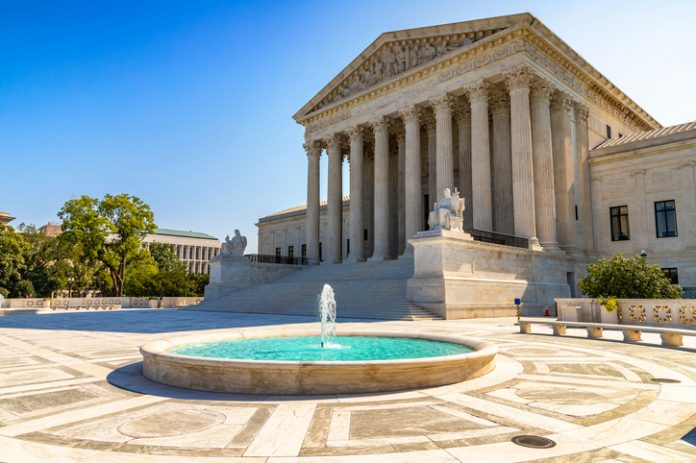By Phil Goldberg
When the U.S. Supreme Court reconvenes at the end of this month, it will consider whether to hear a lawsuit that could have significant adverse implications for America’s energy and climate policy over the next decade. The case was filed by Boulder and other governments in Colorado, and it names Suncor USA and ExxonMobil as defendants. The governments are trying to make the two companies legally liable for climate change by asking their state’s courts to make the companies pay for bridges and other climate-related infrastructure projects in their areas.
If this scenario sounds familiar to Supreme Court watchers, it is. Last year, the Court heard a nearly identical lawsuit from the City of Baltimore, though that lawsuit named other energy companies as well. The Supreme Court sided with the companies and required the Courts of Appeals to more fully consider whether climate-related claims can be heard in state or federal court. Now, the companies are back, asking the Court to directly answer these questions, namely do claims alleging damages from climate change arise under federal law and, if so, must they be heard in federal court.
Whether and how the Court answers these questions will impact America’s legal policy for the next decade. This lawsuit is part of a coordinated national litigation campaign, with two dozen similar lawsuits around the country—all by state and local governments that name different combinations of companies that sell Americans our energy. All of these lawsuits are packaged as state claims in an effort to sidestep the Supreme Court’s 2011 ruling in American Electric Power v. Connecticut.
In AEP, the Court issued a unanimous ruling written by the late Justice Ginsburg that climate litigation raises emissions and energy policy matters that are federal and legislative in nature. The Court explained that deciding how to address climate change is not a liability question for the courts at all. The current lawsuits by Boulder and Baltimore are attempts to circumvent this ruling and convince state courts to award money to local jurisdictions. So, there are important reasons to take this case with respect to defending the Court’s jurisprudence.
From a practical perspective, subjecting American companies to liability for climate change is an ineffective way to address this broad, global challenge. As the Court explained in AEP, climate change is a by-product of modern society and needs to be meaningfully addressed, and judges simply do not have the institutional means to do so. Specifically, they cannot assess and make decisions about the many causes of climate change or factors that go into setting national and international policies—including energy affordability for families and businesses and national security interests.
One alarming aspect of these lawsuits is that the architects of this litigation are trying to leverage these inefficiencies to their advantage. They have said that imposing the costs of climate adaption on energy production and use will allow them to get around Congress’s unwillingness to “raise the price” of fuel so the impacts of climate change will “get priced into” the gas and electricity American families and businesses use every day. It is their way of holding “consumers responsible” for climate change. Most families and businesses can hardly afford to pay more at the pump or in electric bills for these lawsuits.
In addition, for those of us focused on solutions, this litigation misses the mark. These lawsuits will not generate any new technologies, but will distract from doing so. They also pit communities against each other, a point more than fifteen state attorneys general made in objecting to this litigation. They do not want the government plaintiffs to use lawsuits as political tools to “export their preferred environmental policies and their corresponding economic effects on to [their] states.” The lawsuits will hurt efforts in their own communities to address climate impacts by limiting their options and draining resources.
Those communities looking for financial assistance to address climate impacts should look to federal and state programs—including in the recent legislation signed by President Biden—that are already making funds available to facilitate real climate action and more resilient communities.
Finally, many national security experts have expressed concern that these lawsuits seek to make only American, Canadian and European energy companies pay for climate adaptation—not OPEC, Russia and other state-owned energy companies. As recent events have demonstrated, this approach directly interferes with efforts to increase domestic energy, support our allies and advance cleaner energy sources.
At the end of the day, it is likely not a question of if the Supreme Court will hear these cases, but when. It has already taken review of climate litigation twice. Given the importance of the legal and energy issues at stake, the Court should provide guidance now on where these cases should be heard—and whether they are appropriate for courts at all.
Phil Goldberg serves as Special Counsel to the Manufacturers’ Accountability Project, a project of the National Association of Manufacturers.
Originally published by RealClearEnergy. Republished with permission.
For more on climate lawsuits, click here.
For more on Colorado public policy issues, click here.


























